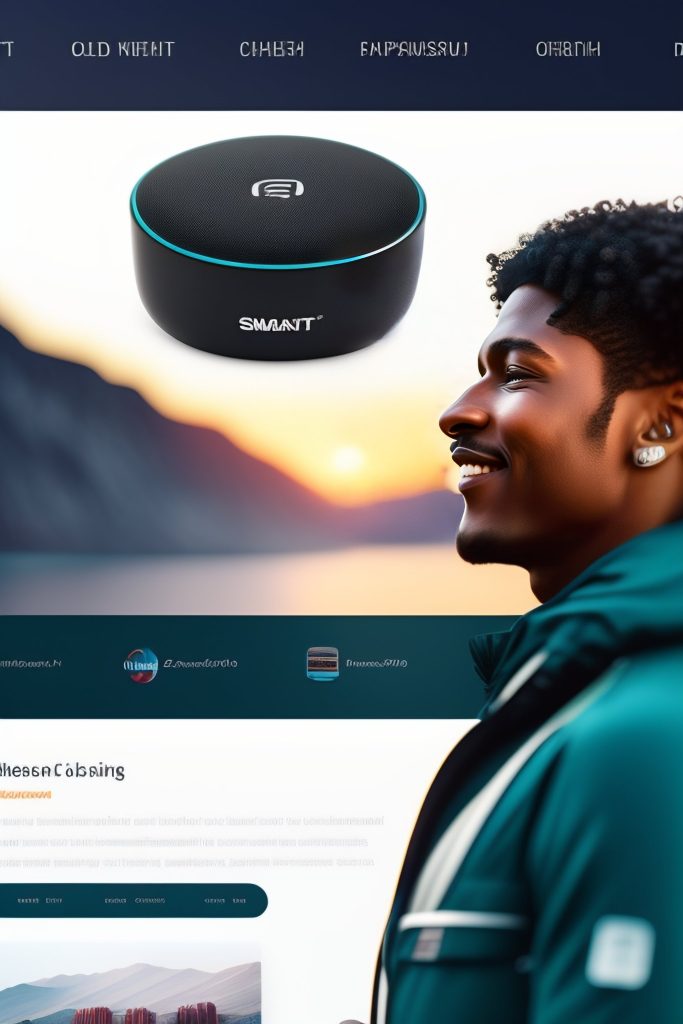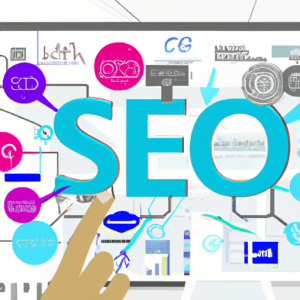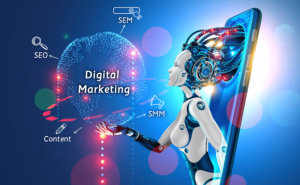Understanding Artificial Intelligence and Search Engine Optimization
In the dynamic and ever-evolving world of digital marketing, the convergence of Artificial Intelligence (AI) and Search Engine Optimization (SEO) is a subject of paramount importance. With search engines like Google continually enhancing their algorithms using AI, it is vital for marketers and SEO professionals to comprehend and adapt to how AI is reshaping SEO.
AI, at its core, is a branch of computer science dedicated to the creation of intelligent machines capable of mimicking human behavior. It encompasses technologies such as machine learning, natural language processing, and neural networks. On the other hand, SEO is the practice of optimizing websites or web pages to improve their visibility and rank higher in Search Engine Result Pages (SERPs).
How AI is Impacting SEO
AI is revolutionizing the SEO landscape. The advent of AI and machine learning algorithms such as Google’s RankBrain and BERT has necessitated a shift in the strategies employed by SEO specialists.
Initially, search engines depended heavily on keywords and backlinks to rank websites. While these elements are still crucial, AI has introduced an additional layer of complexity. AI algorithms can understand the context and intent behind queries, making them better at delivering accurate and relevant search results.
In addition, AI is aiding search engines in analyzing user behavior patterns, enabling them to deliver personalized search results. This means that user experience (UX) is playing a more significant role in SEO than ever before.
AI and User Experience
User experience (UX) has always been crucial for SEO, but with the advent of AI, it’s significance has amplified. Search engines now use AI to analyze various factors such as page loading speed, mobile-friendliness, site structure, and content quality to determine UX, which in turn influences the ranking of a webpage.
For instance, if your website takes too long to load or isn’t mobile-friendly, users are likely to leave quickly. AI algorithms can recognize this and may lower your site’s ranking. Therefore, to ensure high SERP rankings, it is crucial to focus on improving UX.
AI and Content Relevance
AI and machine learning have made search engines more adept at understanding the relevance and context of content. Google’s BERT update, for example, uses AI to better understand the intent behind a user’s search.
To stay relevant in this AI-driven SEO world, it is vital to create high-quality content that aligns with the intent of the user. This includes understanding your audience’s needs and providing valuable content that addresses their queries.
Voice Search and AI

With the growing prevalence of voice assistants like Siri, Alexa, and Google Assistant, voice search optimization is becoming an integral part of SEO strategies. AI plays a crucial role in this realm, as it helps these voice assistants understand and process natural language queries.
Here are some tips to optimize for voice search:
- Use conversational language and long-tail keywords.
- Aim to answer questions, as most voice searches are question-based.
- Ensure your website loads quickly, as voice search devices often pull from the top-ranking pages.
AI and SEO Tools
Numerous SEO tools are integrating AI to provide more valuable insights, automate tasks, and improve decision-making. For example, tools like SEMRush and Moz use AI to offer in-depth keyword research, competitor analysis, and content optimization suggestions.
Using these tools, marketers can automate time-consuming tasks like data collection and analysis, allowing them to focus more on strategy development and implementation. Moreover, with AI’s predictive capabilities, these tools can also help anticipate future trends and user behaviors, enabling marketers to stay ahead of the curve.
Preparing Your SEO Strategy for AI
Incorporating AI into your SEO strategy is no longer optional; it’s necessary. Start by focusing on creating high-quality, relevant content that resonates with your audience. Prioritize user experience and remember that every interaction a user has with your site can impact your SERP rankings.
Also, consider leveraging AI-powered SEO tools to enhance your marketing efforts. By preparing your SEO strategy for AI and staying abreast of the latest trends, you can ensure your website is well-positioned for the future of SEO.
Conclusion
The integration of AI into SEO is changing the landscape of digital marketing. The sooner marketers and SEO specialists understand and adapt to this change, the better they will be able to leverage AI to their advantage. Stay ahead of the curve by embracing AI in your SEO strategy and reap the benefits of improved search engine rankings.
Remember to include your targeted keywords in a natural and contextually appropriate manner throughout your blog. Use them in your headings, meta description, and ALT tags of images. Ensure you provide high-quality content that offers value to your readers. That’s how you can keep them coming back for more and improve your search engine ranking over time.








